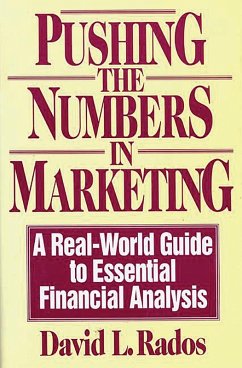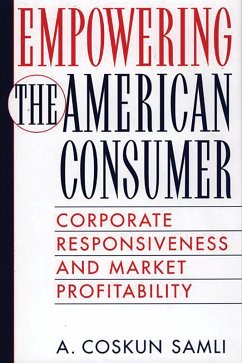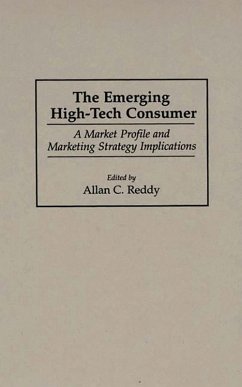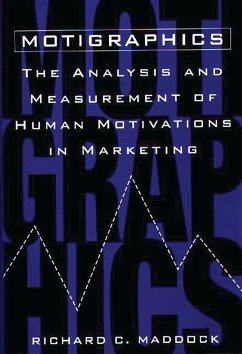
Customer Fraud and Business Responses (eBook, PDF)
Let the Marketer Beware
Versandkostenfrei!
Sofort per Download lieferbar
58,95 €
inkl. MwSt.
Weitere Ausgaben:

PAYBACK Punkte
29 °P sammeln!
From remarkably frank and credible responses to their comprehensive research questionnaire, Tian and Keep provide a unique, wide ranging catalogue of frauds that customers perpetrate on businesses--and what marketers can do to combat it. They were able to receive and analyze more than 250 written descriptions--a 71% response rate!--of the acts that customers committed and the methods they used. Instead of merely a checklist, Tian and Keep obtained their data in the customers' own words, resulting in highly detailed and reliable insights into why customers did what they did. They find that cust...
From remarkably frank and credible responses to their comprehensive research questionnaire, Tian and Keep provide a unique, wide ranging catalogue of frauds that customers perpetrate on businesses--and what marketers can do to combat it. They were able to receive and analyze more than 250 written descriptions--a 71% response rate!--of the acts that customers committed and the methods they used. Instead of merely a checklist, Tian and Keep obtained their data in the customers' own words, resulting in highly detailed and reliable insights into why customers did what they did. They find that customer fraud has emerged as a form of guerilla warfare against companies, that it is adapted to specific situations, and that underlying customers' motivation is a need to get even. Ethics has little do with it. In fact, some respondents even asserted that they had an obligation to commit fraud: they did it to retaliate against what they perceived as unethical acts that businesses committed against them. The result is a rare documentation of the specifics of fraud, how it threatens not only business but entire economies, and the actions--bold and subtle--that marketers can take in self-protective response. Not only will corporate management, particularly in marketing, get detailed descriptions of their customers' fraud strategies and tactics, but they will also receive insights into where they are vulnerable and why. Tian and Keep show that fraud has become so socially acceptable among middle class customers that they are willing to share their tactics, strategies, and secrets with their friends. With this as their foundation, the authors give practitioners an arsenal of detection and deterrence methods. Equally important, they provide ways to implement them without alienating their other, blameless customers. They also show marketers what they can do to reestablish trust in their marketing exchanges with customers, and improve relationships in ways that will diminish (if not fully eliminate) the incidence of fraud. For management generally as well as marketers in companies of all sizes and type, Tian's and Keep's book is essential, engrossing, and useful reading.













